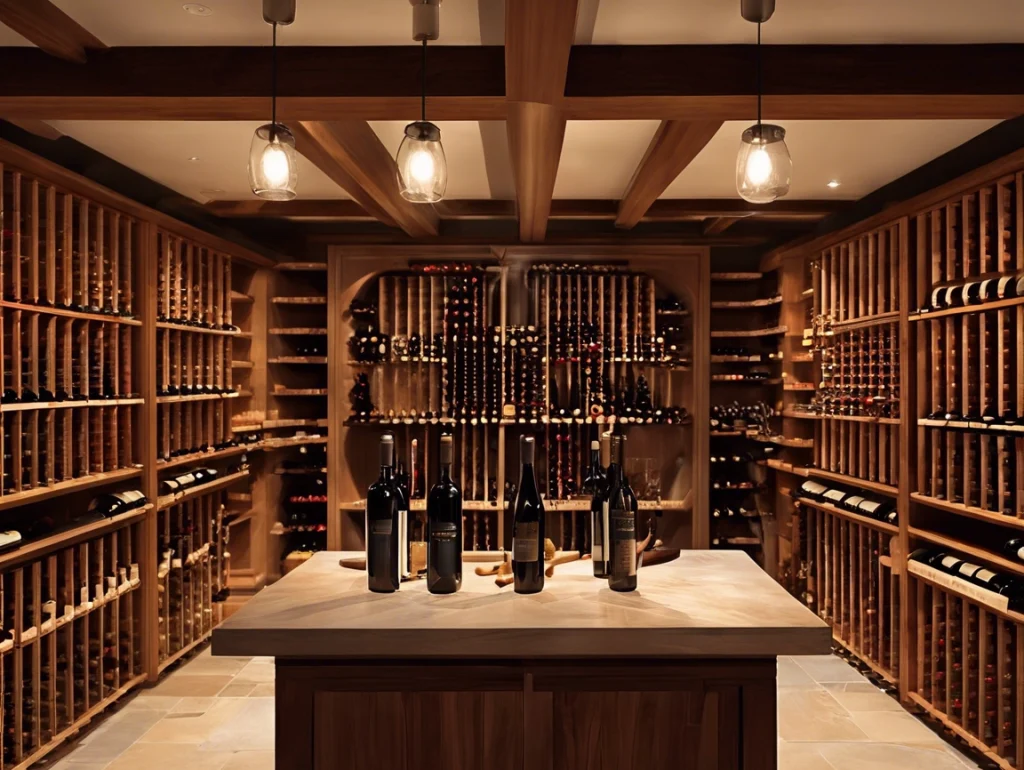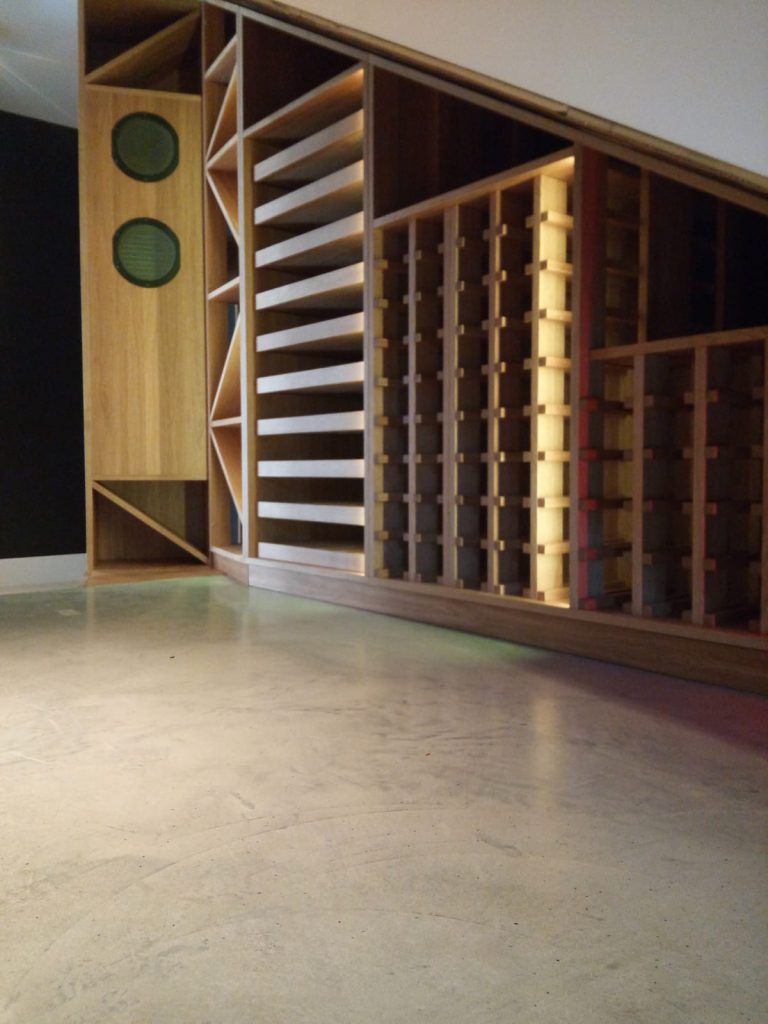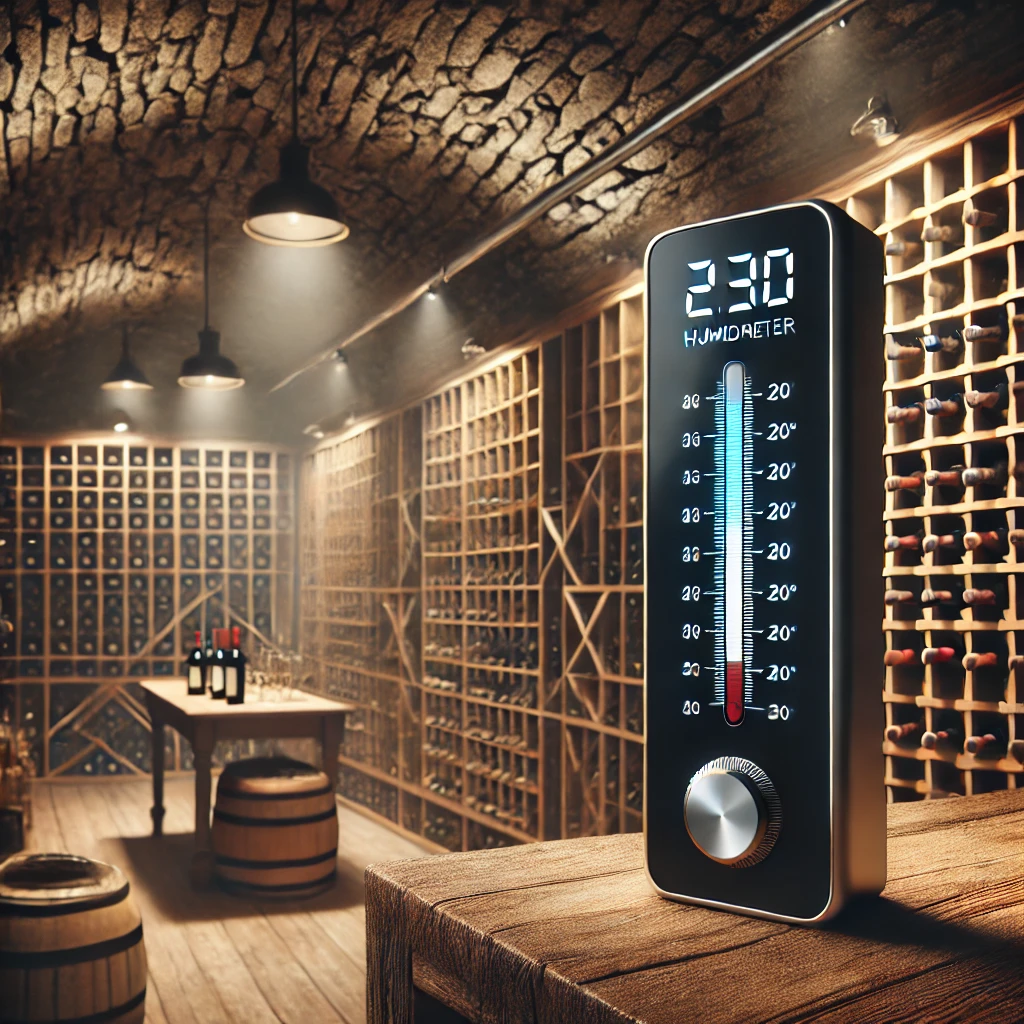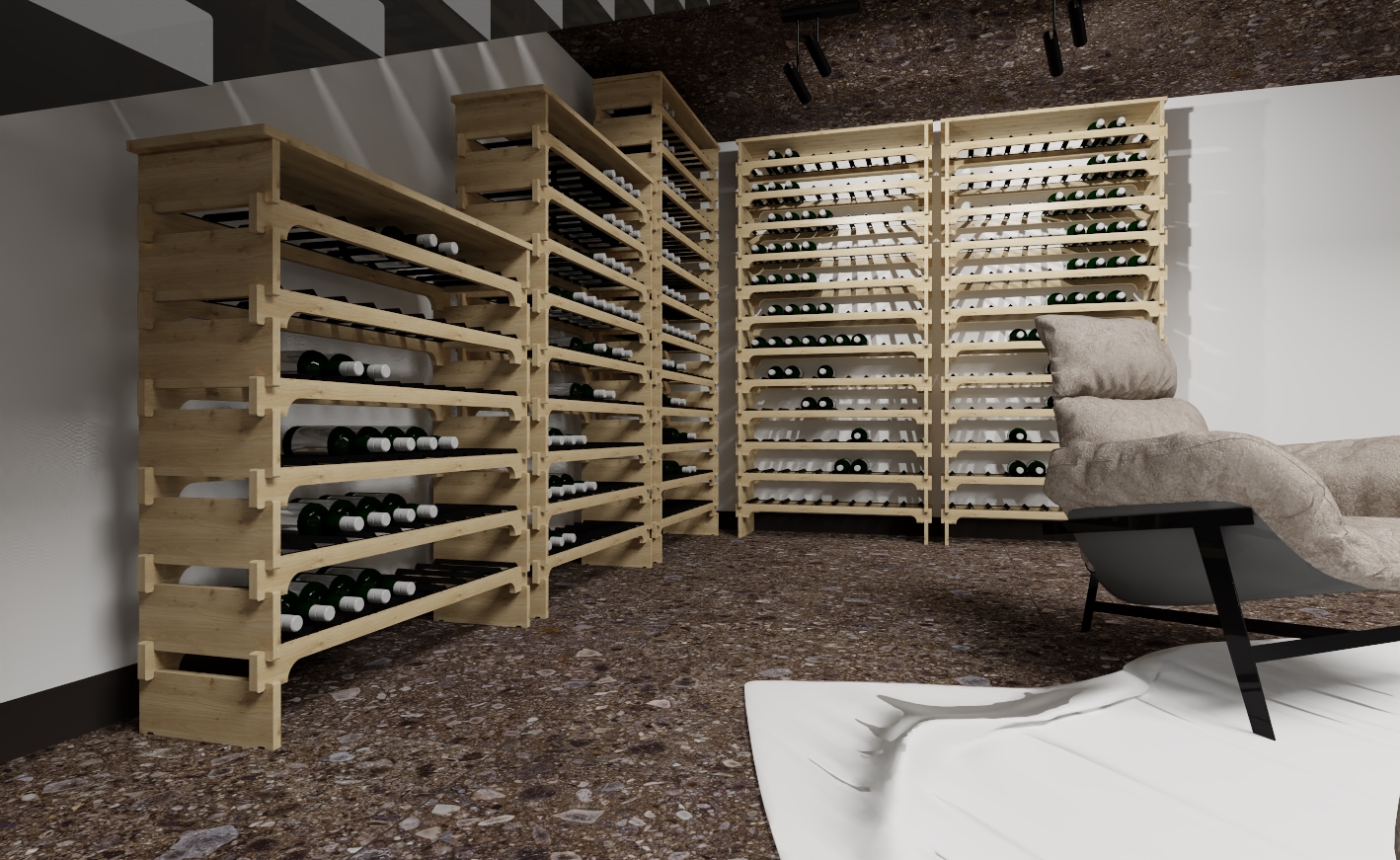Wine and humidity – a cellar filled with bottles of wine is the dream of every connoisseur of this noble beverage. However, simply amassing a collection is only the beginning.

The key to maintaining the value and taste of wine is proper storage, and one of the most important factors in this process is humidity.
How do you look after your collection and what steps should you take to keep it safe? Here is a guide to humidity in the wine cellar.
Why is humidity important for wine?
Wine is a living product – it reacts to environmental conditions, including temperature and humidity.
The optimum humidity for wine storage is between 60-70%. Why?
- Natural cork: Moisture prevents corks from drying out. A dry cork can shrink, leading to bottle leakage,
oxidation of the wine and loss of its flavour. - Labelling: Too much humidity (above 80%) encourages mould growth and can damage labels, which are the showpiece of the collection.
- Wine longevity: Maintaining adequate humidity helps to maintain stable conditions for wine maturation,
which is crucial for liquors intended for long-term storage.
How do you measure humidity?
An essential tool in any wine cellar is a hygrometer.
This can be a simple analogue model or a more sophisticated digital one, often equipped with functions to record changes in humidity.
The hygrometer should be placed in a central location in the cellar, away from ventilation and heat sources, to make the measurements as precise as possible.
How to control humidity in the basement?
- Humidifiers: If the air is too dry, especially in winter, it is worth investing in a humidifier.
This device will help to maintain the right level of humidity and prevent plugs from drying out. - Adequate insulation: The wine cellar should be well insulated to avoid humidity fluctuations.
Materials such as polyurethane foam or waterproof membranes are excellent for lining the walls. - Ventilation: A lack of air circulation can lead to condensation and mould. However, ventilation must be subtle so as not to interfere with temperature stability.
- Dehumidifiers: If the humidity exceeds 80%, a dehumidifier will help to restore optimal conditions. It is important to use models suitable for small spaces.

What else is worth knowing?
Temperature versus humidity: the ideal temperature in a wine cellar is around 10-14°C.
Temperature and humidity are related – too high a temperature can affect the humidity.
Regular checks: Check moisture levels and the condition of plugs and labels once a week. Early detection of problems will prevent serious losses.
Decorative functionality: Don’t forget that the practicality of your cellar can be combined with aesthetics.
A sleek hygrometer, recommended information boards or stylish shelving can enhance the character of your collection.
Summary
Humidity is one of the key factors affecting the quality of stored wine. Maintaining it correctly requires monitoring,
proper equipment and attention to detail. Remember that an investment in good storage conditions is also an investment in the taste and value of your collection.
Properly stored wine will repay you with its full aroma and perfect harmony of taste.
Is your cellar ready to receive new bottles? 🌟
Find us on social mediach :








